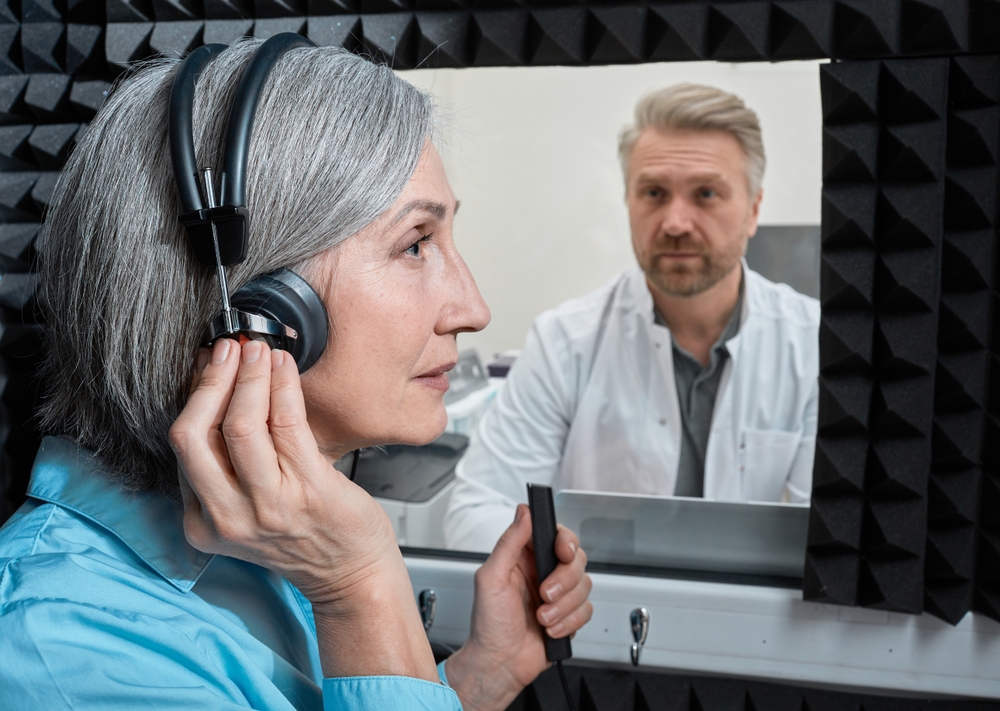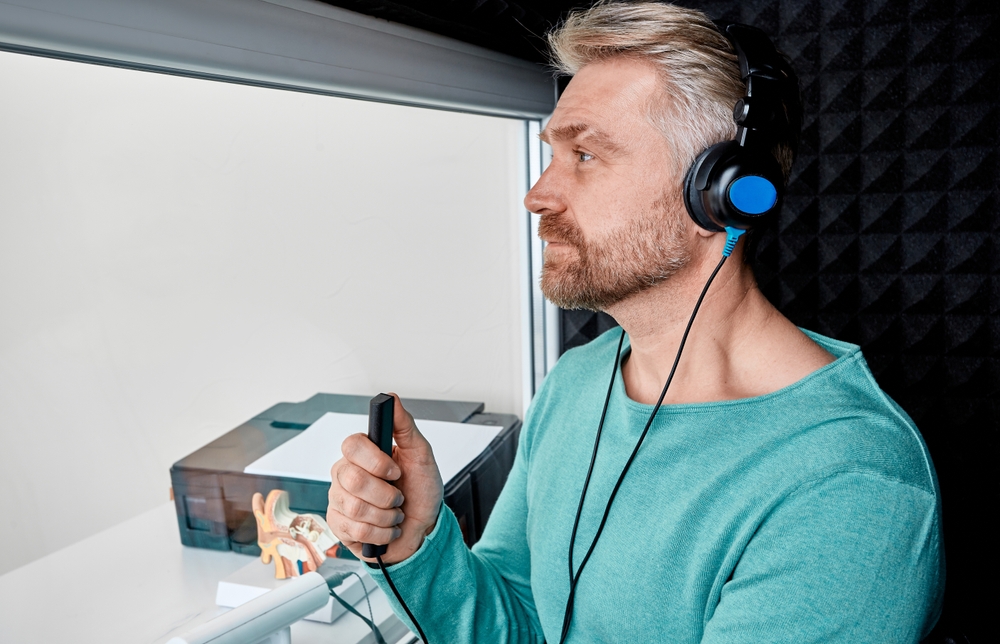Why is it important to have your hearing tested regularly? Well, the reality is hearing loss can have significant and long term impacts on your overall wellness. Getting your hearing tested regularly can help you detect hearing loss early, get care faster, and, improve your health, wellness, and quality of life.
Who should get a hearing test?
A loss in hearing capability can create effects that can seriously hamper your health and wellness. For example, hearing loss can lead to intense social isolation. Conversations with family and friends can become more challenging–and those with hearing loss may be less likely to reach out to other people, even during routine activities like grocery shopping or going to work. This type of social isolation can be detrimental to your mental health and, perhaps somewhat surprisingly, your physical wellness.
Hearing loss can cause other issues as well. For example, untreated hearing loss has been linked to many chronic conditions, including dementia and depression. It’s also been linked to various comorbidities, including diabetes, heart issues, and high blood pressure.
As a result, it’s generally a good idea for just about anyone to schedule a routine hearing test.
Four reasons to check your hearing
There are four significant reasons why checking your hearing can be beneficial to your overall health.
1. You can discover the baseline for your healthy hearing
It may seem silly to take a hearing test while your hearing is still healthy, right? Well, there are several good reasons to take a hearing test early. The most important is that such a hearing test will give your hearing specialist an accurate picture of your current hearing health. This will make it far easier to detect any changes in the future. This is especially true because hearing loss tends to develop slowly–the first symptoms are not always noticeable.
Getting a baseline hearing test will help detect problems well before you notice problems early.
2. Diagnose and treat problems earlier
Hearing loss is usually a progressive condition, meaning it tends to get worse over time. As a result, catching hearing loss early often means a better prognosis. This is because you’re able to treat the condition at the earliest possible juncture.
Early treatment could include anything from taking steps to protect your hearing such as wearing ear protection in noisy spaces to the use of hearing aids. Treatment can help prevent many of the associated problems listed above, such as dementia, depression, and social isolation. This means the sooner you receive treatment, the lower some of those risk profiles may be.
3. It’s easier to measure future changes
Even if you are diagnosed with hearing loss, that doesn’t mean your hearing will remain static for the rest of your life. Regular hearing tests can help you detect changes as you go along–and make adjustments to your treatment plan as necessary.
As with detecting hearing loss in general, the earlier that these changes are discovered, the more effectively they can be treated. And this can prevent more serious issues down the road. And, again, this helps lower your overall risk profile for things like dementia, depression, and social isolation.
4. You can prevent further damage to your ears
Most hearing loss is caused by damage–the kind of damage that occurs slowly and over time. Going to your hearing specialist to regularly get your hearing checked helps you detect that damage as early as possible–and it also gives you access to a significant resource: your hearing specialist. And your hearing specialist can provide you with information, treatments, and best practices that can help keep your ears as healthy as possible.
For example, your hearing specialist can help you figure out ways to protect your ears from day-to-day damage or develop strategies designed to help you keep sounds around you quieter. If you’re using hearing aids, your hearing specialist can help you use them in a way that minimizes further damage to your ears.
How often should I get my hearing tested?
In general, it’s recommended that adults undergo a hearing test sometime in their 20s or 30s–on the earlier side. Once that’s complete, it’s usually standard best practice to get a hearing test every ten years thereafter unless you notice signs of hearing loss or your hearing specialist recommends something more often.
But maybe you’re thinking: what should I expect at my hearing test? And what does a hearing test involve? In general, they’re completely non-invasive procedures. Often, all you do is wear special headphones and listen for a specific sound.
Your hearing specialist will be able to help you get the care you need–whether you need a pair of hearing aids or you just need to protect your ears. And a hearing test can help you determine when the best time to get your care might be.
To find a hearing specialist in your area, click here.



